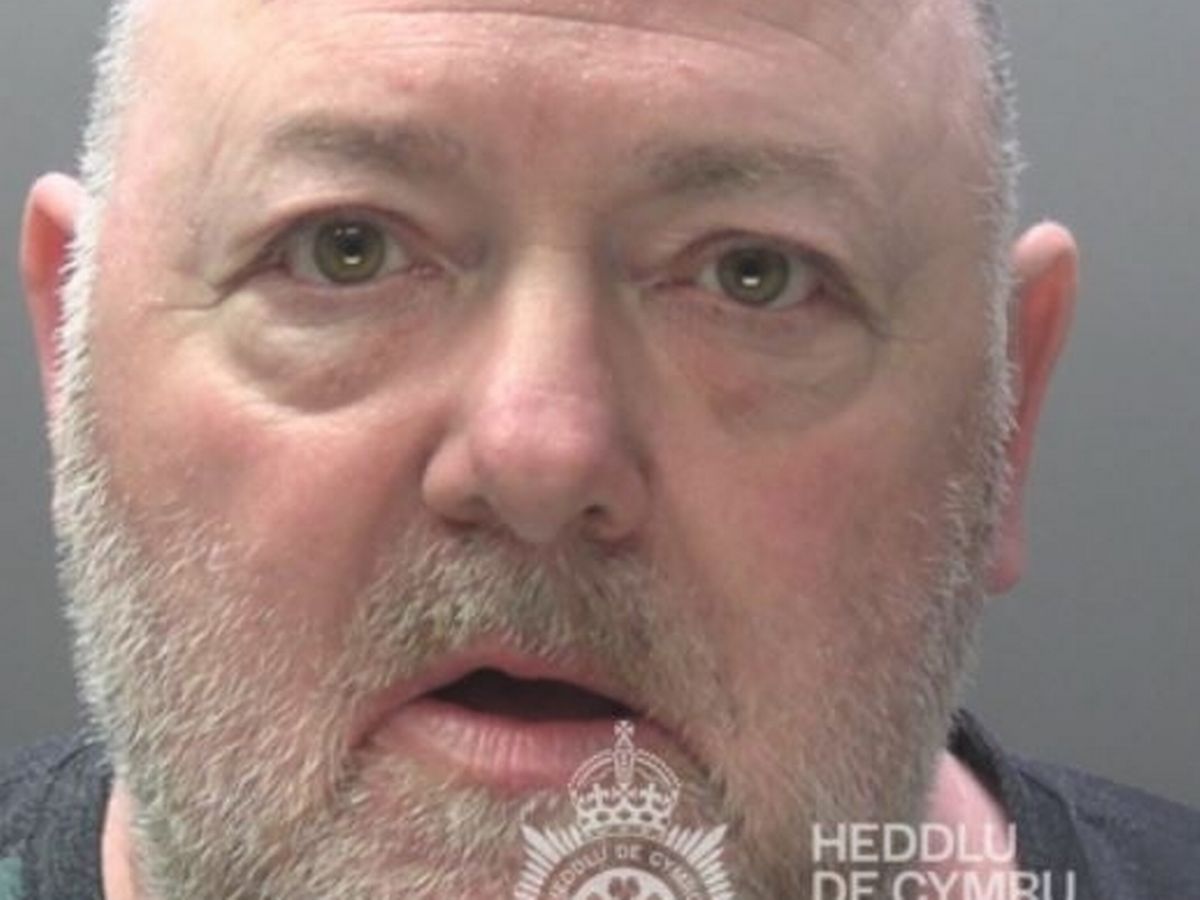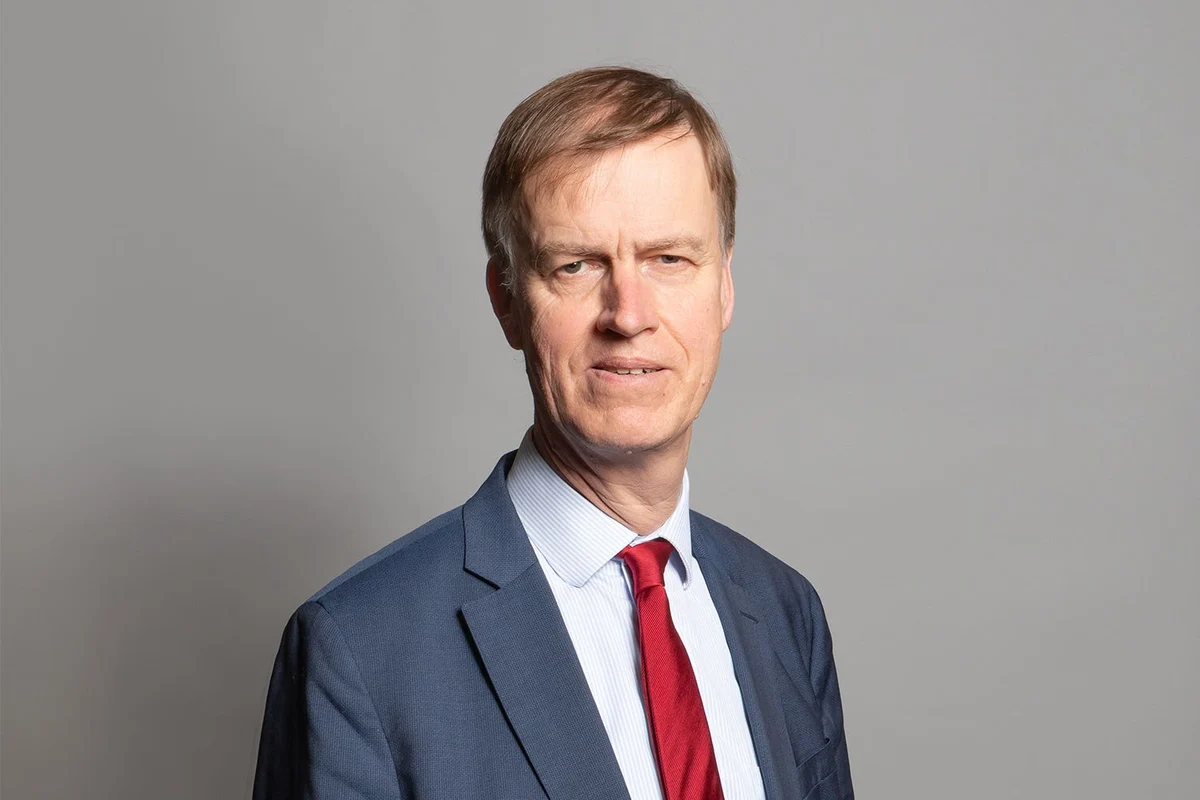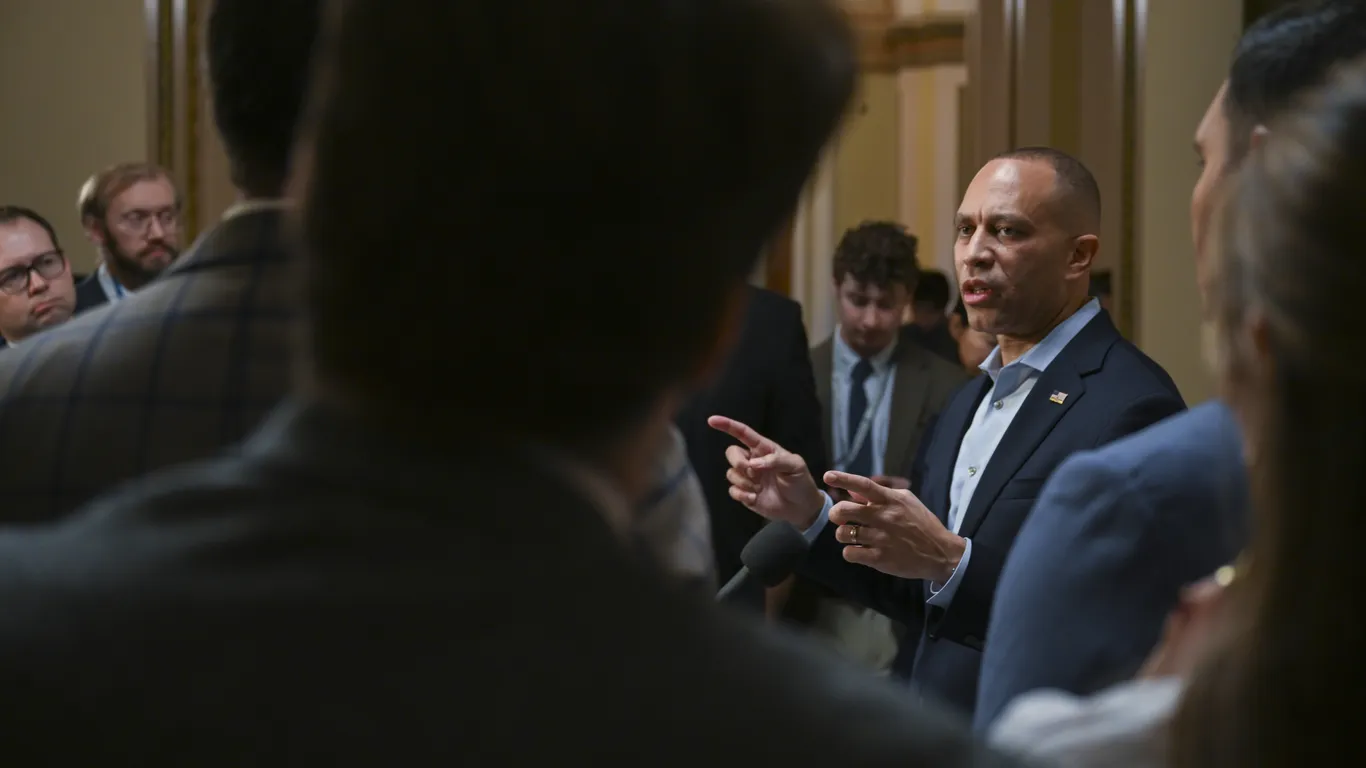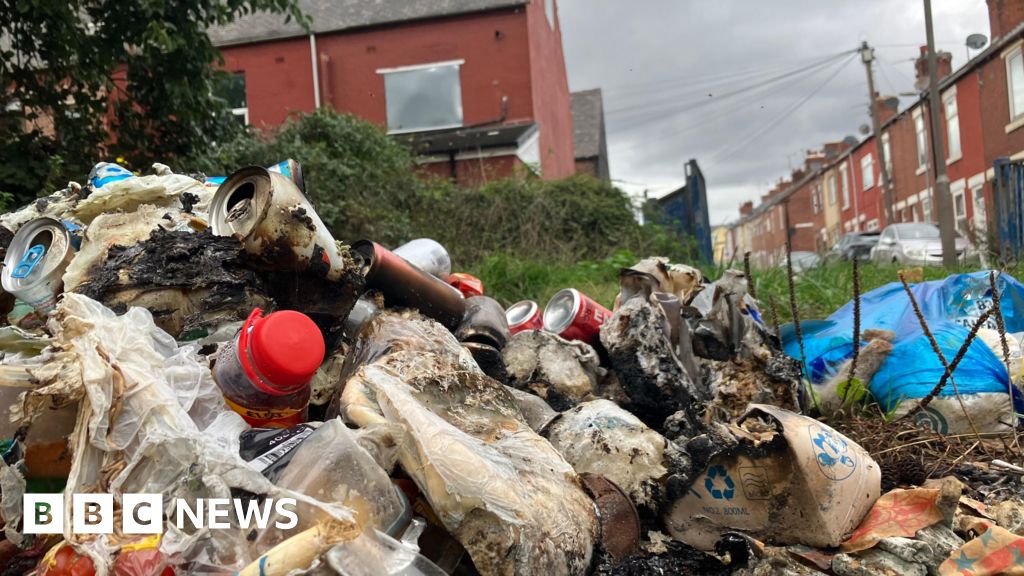Copyright gq
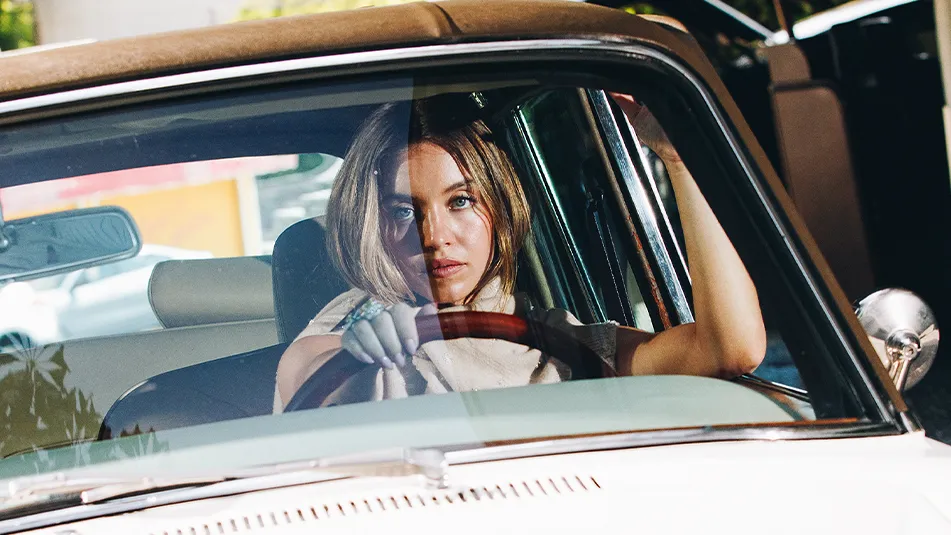
When I sit with her in Los Angeles this September, it’s been about eight weeks since American Eagle stated, on behalf of Sydney Sweeney, that she has good jeans and good genes. Which means it’s been about eight weeks minus one hour since it became clear that the ad campaign—a kitschy summation of Sweeney’s beauty paired with a message straight out of the lab where they cook up culture-war pathogens—was going to be a thing that Americans shouted past each other about for at least a couple of months. Since then: TikTokers argued that the celebration of Sweeney’s phenotypes had a eugenics-y undertone; the president called it “the hottest ad ever”; a campaign was mounted against the author of a critical take in The New Yorker; the vice president said that people who took issue with the ad are the reason Democrats are losing young men; American Eagle share prices jumped 38 percent. Throughout this most recent storm, Sweeney has stayed mostly quiet. She’s not hiding: In the weeks before we speak, she was photographed in Los Angeles doing karaoke with her Euphoria costars Hunter Schafer, Jacob Elordi, and Maude Apatow. But when Sweeney had been out to promote Christy, she declined to answer questions about the ad, and, even in calmer waters, the 28-year-old is persistently buttoned-up. All signs, in other words, were pointing to her continuing to stay out of the national conversation she helped create. But Sweeney arrives at the Chateau Marmont ready to talk. She first alludes to the American Eagle controversy while discussing Christy. In the film, Sweeney portrays Christy Salters Martin, whose public career as a pioneering female boxer was privately altered by her abusive relationship with her coach turned husband. What was so unique about this role, Sweeney tells me, is how much she learned about herself during the production, which began with the book she crafted about Martin (something she does for each of her characters), detailing their life history and influences. “Throughout that process of building Christy, and working with [the real] Christy, and filming the movie,” she says, “I started realizing: Oh wow, I actually have more in common with her than I realized.” How does it feel to have Christy out in the world? Christy is one of those projects and stories that, when you’re making it, the crew, the cast, everyone involved, we all knew it was going to be something special. We had Christy with us on set many days, we would sometimes just cry because of how powerful the story is. Being able to share that experience with the world and to be able to show Christy’s story to the world is so impactful and I’m beyond honored and proud that we were able to bring this story to life. In the beginning, the film is also really fun. You’ve got headgear on, you’ve got a mouthguard in, you’re grinning as you punch people in the face. Was it as much fun as it looked? It was so much fun. I was over the moon. I felt like I finally came to life myself through Christy. We really shaped every single single fight to match Christy’s fights so all the different combos you see me doing are the actual combos from the fights. And I had the best girls to box with, because they were down to actually fight. We would do full contact, we would punch each other in the face, so a lot of those reactions are me as Christy but also just me, feeling like I couldn't believe I did it just then. You have a background in martial arts, tell me about that. I was twelve, thirteen, and I started kickboxing and grappling. I did that until I was about 19, and then I booked Handsmaid’s Tale and Euphoria and I was like, I can’t fight and film at the same time, because I’d come home with bruises. But I always wanted to find a story that would be able to bring that side of myself out. What did fighting give you at that time in your life? The element of surprise. I was the only girl there. It was a lot of, What is she doing here? The dads were a little upset that their sons would be fighting a girl and then I would sometimes win. You’re someone who keeps a strong division between your characters and your personal self. Is that harder when you’ve done this physical transformation for a character like Christy? I actually learned so much more about myself throughout the process. I am someone who I build my book for my character and I learn everything about her life so that I can fully jump in and out and throughout that process of building Christy and working with Christy and filming the movie, I started realizing, Wow I have more in common with her than I realized. That's why this project is just very personally special to me and important. When other women watch Christy, I hope that they walk away and they might either find strength within themselves or be able to be a voice for somebody else. Can you tell me a little bit more about what you have in common with Christy? She is fighting a fight in her home life, and she’s also fighting a fight in the public. And I think that, for me, I find myself in a lot of battles both in front and not in front of the world. So I definitely can relate. Christy has a story about domestic violence, and The Housemaid, which you also star in and produced, takes on domestic violence in a totally different genre. And you designed jeans for American Eagle to raise awareness about domestic violence and benefit a crisis-prevention hotline. You spent a lot of time this year working around that issue, and I wondered if it meant something to you. It does. I always speak out about something that is important to me. And for me to speak out, I use art. Through my characters in my movies, it’s a way for me to be able to do my part and spread awareness in different ways through my characters. That’s how I’ve always learned to communicate, and it’s really important. You’ve had a very nuanced career—I’m thinking of Euphoria and the film about whistleblower Reality Winner, Reality—but you have become very swept up in politics. Has that surprised you? I’ve always believed that I’m not here to tell people what to think. I’m just here to kind of open their eyes to different ideas. That’s why I gravitate towards characters and stories that are complicated and are maybe morally questionable, and characters that are—on the page—hard to like, but then you find the humanity underneath them. Reading interviews with you from 2018 and 2019, when you’re blowing up with roles in culturally relevant shows, you’re like, I really want to be a producer. I’m starting my production company. Jump-cut to today, and you’re a big-deal producer. Do you feel like you’ve accomplished that goal? I always feel like there’s more to learn and more to achieve, so I don’t know if I would say I feel like I’ve accomplished it. I constantly feel like there’s so much more to experience and learn and try, but I’m really excited to be in this part of my career. Does producing free you up in any way as an actor? I definitely feel more involved and more aware of how the story’s going to come together. When you’re just the actor in a project, I always feel like it’s the element of surprise. You never know what’s going to happen. A big thing that happened to you this year is that you ended your engagement. You’re a private person, your ex-fiancé is a private person, so for a lot of us in the media, it was really surprising how much of a news story that was. Did your sense of your own fame change this year? No. I surround myself with a really, really strong group of people who have been in my life since I was little. And they take me out of Hollywood, take me out of this bubble and remind me what the real world is and that that’s where I exist. And so the aspect and the idea of fame, it doesn’t apply to my personal life. I’m just Syd, and I don’t run in that world. You can’t feel the difference in the volume at times? If I turn on my phone, yes. If I have my phone off and I’m home, no. So what is it like now being single? Are you single? I’m single. Okay. You’re single. You are out there now as a person who has a lot of power, I would say, and a person who people are obsessed with. And someone who I gather is really focused on their work. How does that change what you’re looking for out of relationships? I don’t think I’m looking for a man right now. What I’ve learned this year is that I have a really, really amazing group of girlfriends and I am strong and independent and that I’m going to be okay. If love finds me, love finds me. I’m a hopeless romantic, so I hope love finds me, but I’m not the type of person that wants to go out all the time. And I do believe in true love and wanting to be with someone for the rest of my life. So I’m not going to…you won’t see me jumping around a lot of places. Jumping around a lot of places like— The rumors about you and Glen Powell dating on the set of Anyone But You—which we now know were a projection, or a game almost—maybe wouldn’t have gone so viral if you weren’t a very private person. I imagine there are personal benefits to being private about your personal life, but are there also professional benefits? The professional benefits for me of being private is for my own health and sanity. I think that if I let everybody in all the time, I have nothing for myself. I’m just a 28-year-old woman who’s trying to figure it out, and I’m still learning and I’m going to make mistakes and I’m going to grow. And I think that it’s important to be able to do that without having to say every single thing all the time. So you’re never tempted to just open your Notes app and say: This is what I really think and this is who I am, and this is what’s going on in my life, stop guessing and projecting. I mean, I’ll vent to my girlfriends. But other than that, no. I know who I am. I know what I value. I know that I’m a kind person. I know that I love a lot, and I know that I’m just excited to see what happens next. And so I don’t really let other people define who I am. We’re sort of talking around this American Eagle ad right now, and maybe we should just talk about it. Were you surprised by the reaction? I did a jean ad. I mean, the reaction definitely was a surprise, but I love jeans. All I wear are jeans. I’m literally in jeans and a T-shirt every day of my life. The president and the vice president spoke about the jeans ad. What was that like? It was surreal. I think it would be totally human to feel—I would probably feel—thankful that somebody had my back in public, and conveniently some very powerful people. I wondered if you felt that way. I don’t think…. It’s not that I didn’t have that feeling, but I wasn’t thinking of it like that, of any of it. I kind of just put my phone away. I was filming every day. I’m filming Euphoria, so I’m working 16-hour days and I don’t really bring my phone on set, so I work and then I go home and I go to sleep. So I didn’t really see a lot of it. You’ve made a really good case for keeping your thoughts and your life separate from that work. The risk is that there’s a chance that somebody will get some idea about what you think about certain issues and feel like, Oh, I don’t want to see Christy because of that. Do you worry about that? No. No, I think that if somebody is closed off because of something they read online to a powerful story like Christy, then I hope that something else can open their eyes to being open to art and being open to learning, and I’m not going to be affected by that. Is there something that you want to say about the ad itself? The criticism of the content was basically that, maybe specifically in this political climate, white people shouldn’t joke about genetic superiority. I think that when I have an issue that I want to speak about, people will hear. By some reports, American Eagle’s stock price went up 38 percent. Does that make it less painful to be at the center of that much conversation, if you know that it really worked for the business that you’re partnering with? I was aware of the numbers as it was going. So when I saw all the headlines of in-store visits were down a certain percentage, none of it was true. It was all made up, but nobody could say anything because [the company was] in their quiet period. So it was all just a lot of talk. And because I knew at the end of the day what that ad was for, and it was great jeans, it didn’t affect me one way or the other. The early part of your career was defined by a lot of chatter about how women actors, and you, are represented onscreen: Is it empowering or is it not empowering? In regards to my body? Yes. I think Cassie brought that out. That’s not really part of the conversation anymore. Is Hollywood changing, or does it have to do with moving into actor-producer roles? I think that the conversation around it is changing. I’ve always looked at a woman’s body as a very beautiful, powerful tool. I transformed my body for Christy. Being able to change my body and appearance to be able to become other characters is a challenge, but then also really amazing at the same time, that we’re capable of doing stuff like that and being able to tell stories through our body. And I’ve always looked at it that way. I’ve always looked at it as my body is another tool to tell this story. How does using that tool change when you are more in the driver’s seat as a producer? I’m thinking about The Housemaid. You’ve been in sort of an understated wardrobe, playing a character who has only the clothes on her back. Then there’s a scene where you’re in this home theater and you’re wearing a push-up bra— Not a push-up bra. It’s just my boobs. Wow. Fact-check me. That’s just a sports bra or something? I mean, she’s wearing what she’d wear to bed. She’s being comfortable. It’s for herself. It’s not for anybody else. That was sort of where I was going, though. Watching that scene in The Housemaid, there’s a self-awareness to it. Amanda Seyfried, playing the wife and your employer, comes in and comments on it, and it’s funny. It was like, Here’s this movie letting Sydney use her body in this way, but also letting you know that we’re all in on this joke. I wondered if that is a hallmark of you having more control of the project. I think so. I think as time goes on, people will see that I’m way more aware of things than people think. Can you say a little bit more? I mean, if I say it then…. I like to let the art speak for itself. I think that’s where it’s fun. But you know that you are giving us permission to keep projecting a little bit. We’re going to keep taking what you do and putting it up on our board of “What does Sydney think?” I can’t wait to see what the board says. Katherine Stoeffel is GQ’s features director. This interview has been condensed and edited from a video you can see here. A version of this story originally appeared in the December 2025/January 2026 issue of GQ with the title “Sydney Sweeney: Obsession of the Year." PRODUCTION CREDITS: Portfolio by Tyrell Hampton Styled by George Cortina Hair by Teddy Charles Makeup by Melissa Hernandez using Armani Beauty Nails by Zola Ganzorigt at The Wall Group using Opi Tailoring by Yelena Travkina Set design by Heath Mattioli Produced by Camp Productions Photographed on location at Chateau Marmont
